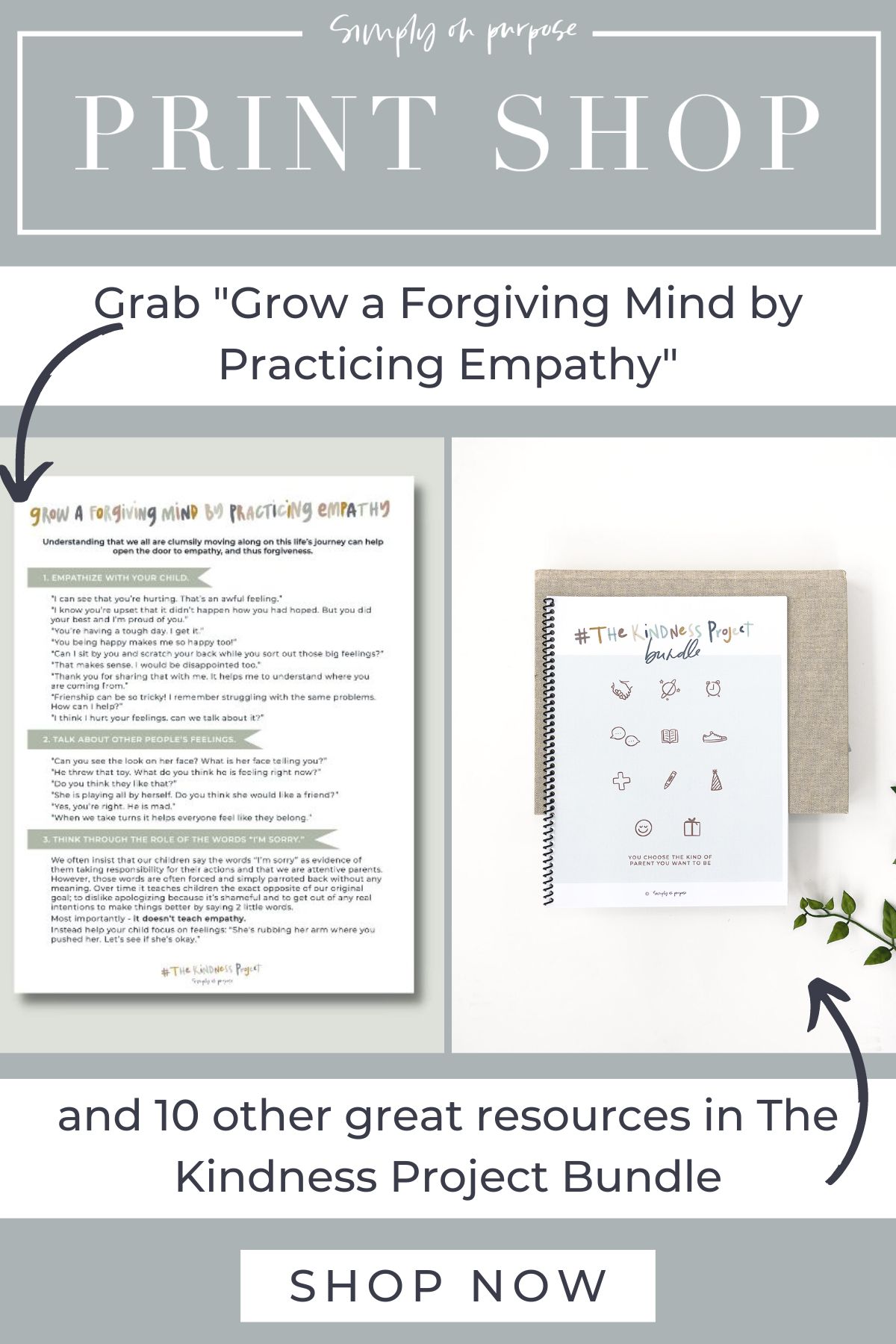Are you still forcing your child to apologize? Here are 3 reasons you should stop wasting your energy and teach empathy instead.

We’ve all been there. You are enjoying a lovely day at the playground until all goes silent. All eyes turn to you as you see that your child has just hit another child. You break out in cold sweats. What do you do?
Do you…
- A) march over to your child, grab them by the arm and demand they say “I’m sorry” to the crying child
- B) run away and never return to that park
- C) crouch down to the hurt child, sincerely apologize and then turn to your own child and ask “Can you see the tears on his face? What can we do to make it better?”
Many of us were raised with option A, a forced and humiliating public apology, that satisfies the other watching parents.
But because our goal is to be intentional parents, we know there is a better option that uses this common situation as a teaching opportunity.
I’m going to show you 3 reasons we shouldn’t force apologies from our children and how to teach empathy instead.
Why You Should Never Force an Apology From Your Child
1. It teaches that it is okay to give an insincere apology
We often insist that our children say the words “I’m sorry” as evidence of them taking responsibility for their actions and that we are attentive parents.
However, those words are often forced and simply parroted back without any meaning.
Parents want their children to feel responsible for their actions, but when we force an apology, that’s not apologetic.
Over time it teaches children the exact opposite of our original goal; to dislike apologizing because it’s shameful and to get out of any real intentions to make things better by saying 2 little words.
When we make them give a non-apologetic apology, they gain all the benefits of apologizing without remorse or desire to make things better.
2. It’s humiliating
As parents, it is our job to use our child’s mistakes and choices throughout their life to TEACH, not to humiliate and shame.
The child already feels bad about the mistake that they made, but when a parent draws attention to the situation by demanding an apology?
Now this private teaching moment has become a public shaming.
No wonder it’s so hard for so many of us to say “I’m sorry,” even now as adults!
3. It denies you the opportunity to teach empathy
Did you know that empathy is actually not an inborn trait?
Children are born good and caring, but they must learn how to look at things from someone else’s point of view and feel emotions from that perspective.
When we force an “I’m sorry”, we are missing an essential opportunity to teach.

How to Teach Empathy
Children have to learn how to see things through other people’s eyes. And it takes a lot of practice!
How are they going to learn?
Through your modeling and by thinking of how they could help someone else feel better.
Empathize with your child
The first way you will teach your child empathy is by modeling the behavior for them. This is especially effective when they are the recipient of empathy when they are hurt or having a hard day.
Here are some examples of things to say to show your child empathy:
- “I can see that you’re hurting. That’s an awful feeling.”
- “I know you’re upset that it didn’t happen how you had hoped. But you did your best and I’m proud of you.”
- “You’re having a tough day. I get it.”
- “Can I sit by you and scratch your back while you sort out those big feelings?”
Talk about other people’s feelings
The second way you can teach empathy is by talking about how to recognize the feelings of others. Lead them through the thought process, so the child can put themselves in someone else’s shoes.
Here are some examples:
- “Can you see the look on her face? What is her face telling you?”
- “He threw that toy. What do you think he is feeling right now?”
- “Do you think they like that?”
How to Teach Empathy to Kids Resource
If you want even more scripts you can use to model and teach your child empathy, you can find this resource and others in the Simply On Purpose Print Shop.
If you want to learn more about your power as a parent, check out these other resources:

